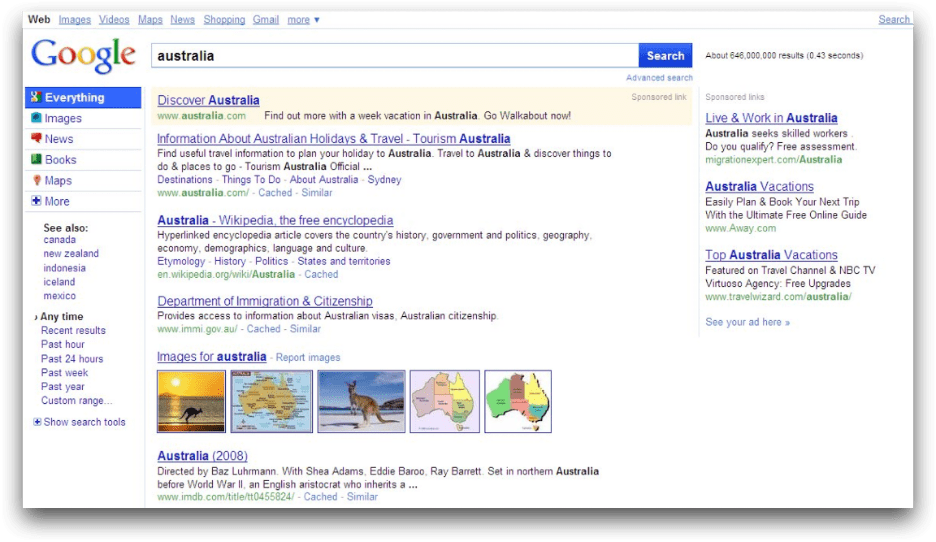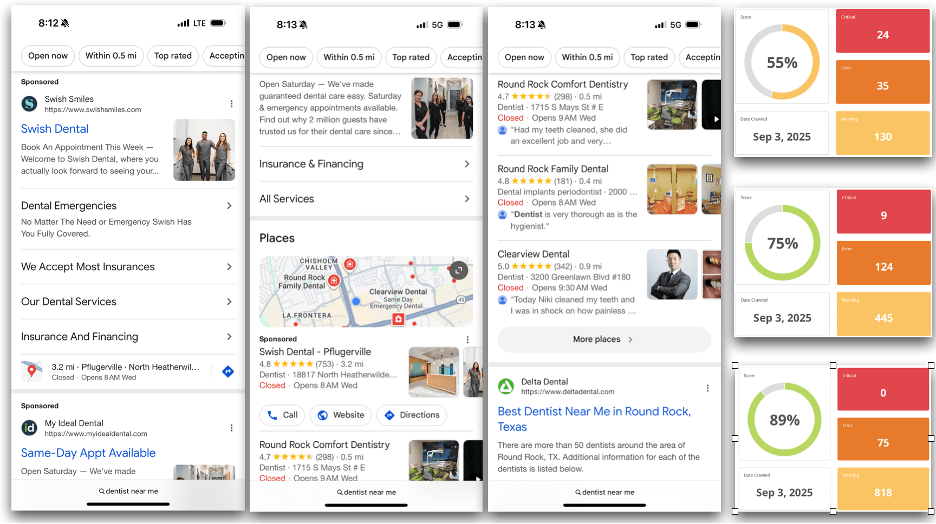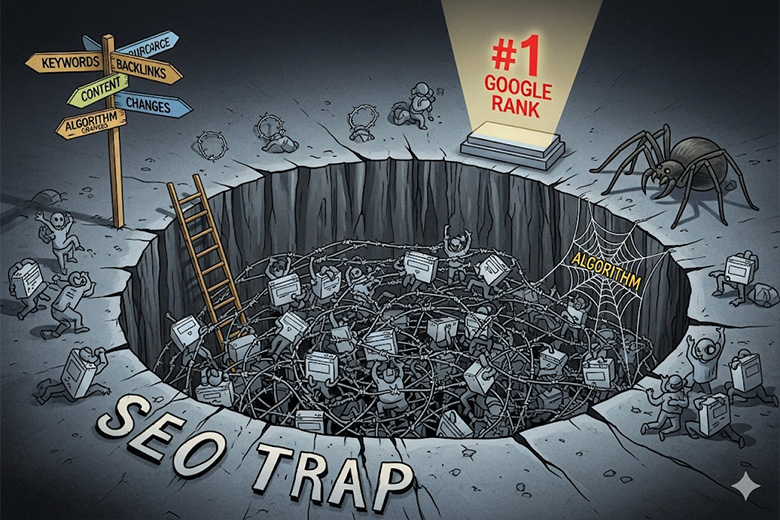I have talked to many Human and Animal Health practices about their websites and marketing, and almost always the question of SEO (Search Engine Optimization) comes up. Customers ask for SEO without fully knowing what it is. They buy into the dream: "If I invest in SEO, my practice will be #1 on Google!", but is it really possible? Let me share my opinion.
“You will only be number 1 on Google if you pay Google.
Pay someone else and you’re just hoping for luck.”
Technology changes over time. Awhile back, a Google search gave you pages of results while ads were mostly tucked away on the right. When you searched for "Australia," you got exactly that - straightforward information about Australia.

Source: Google, From around 2014
Fast forward to today, and it's a very different experience: ads blended into the results, maps, snippets, videos, shopping links, and all of that appears before you see the organic search listings. Search hasn't disappeared. But the way Google presents it has changed dramatically, and that has big implications for anyone who thinks "#1 on Google" is the same today as it was 10 years ago.
Why is that? Google prioritizes paid ads and local results vary. Searches like “dentist near me” or “veterinarian near me” return results based on geography, reviews, and personalization, rather than just straightforward keyword optimization.
If a patient searches for “Dr. Peterson at Peterson Dental in Morristown” - they’ll find you right away. SEO isn’t the deciding factor there because the search request is very specific. But if the search is more generic, like “Best Dentist in Morristown” or “Dentist near me” (which is what I searched for when I was in Round Rock, TX recently), it’s a very different story.
Take a look at this search: you have to scroll past ads, maps, and directories before you even see the first three local dental clinics. From the practices that appear in the search results, one out of three has a good SEO website score (89%) as you see on the right. SEO score measures how well a website is equipped for search and a result of 80% or higher is considered good. The other two practices do not have a good score, but they did appear in my answer. Maybe Google just did what I ask and showed the ones nearest to me.

The way people search for information is changing and now as AI engines like ChatGPT are winning territory. Recent research shows that 5% (and growing) of people are already using AI tools instead of Google to search, signaling a shift in behavior.
The takeaway from this article is:
Search isn’t disappearing. But the way people find, and trust information is evolving fast and so should your SEO spending.
If you are running an animal or a human health practice, you need to check your SEO spending monthly. If it is not obvious on your bill - ask your website/SEO provider. You should ask all your new clients where they come from. AutoRemind proprietary research shows that over 80% comes from word of mouth, or insurance in the case of human healthcare. Ask in person during their first visit or send a survey afterwards. Get a good understanding if your new customers find you via generic search and compare that to you SEO spend. Maybe if would be prudent to move some of the spend to online advertising or to communicate with your current customer base more often.
In conclusion, medical and veterinary practices should be cautious of buying into the a promise of “#1 on Google.” SEO can improve practice visibility, but it is not a magic bullet. The smarter strategy is to combine basic SEO with strong referral systems, thoughtful advertising, and regular measurement of what actually drives clients through the door. Ranking promises may sound attractive, but in human health and veterinary care, trust, reputation, and patient relationships are likely to be stronger predictors of growth.
